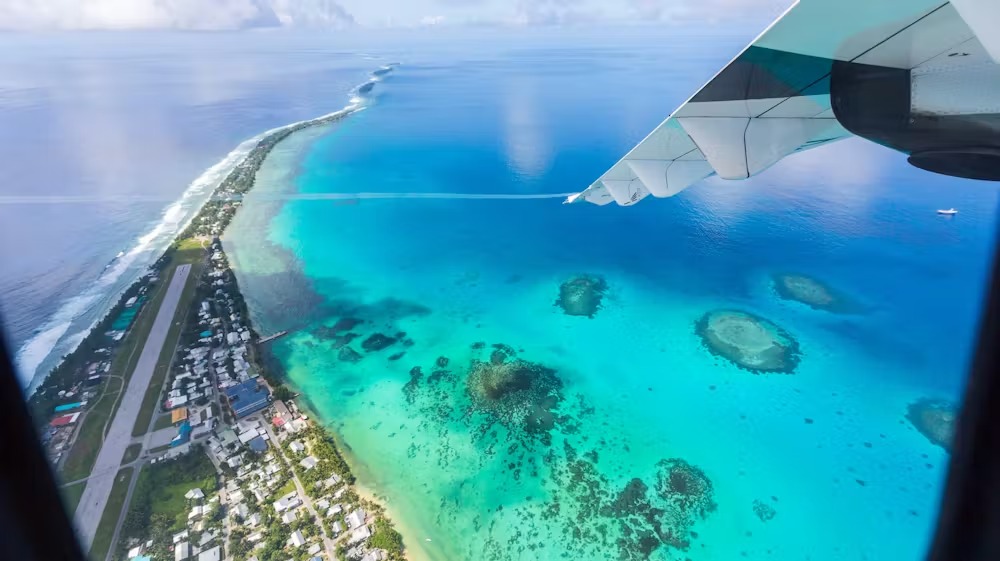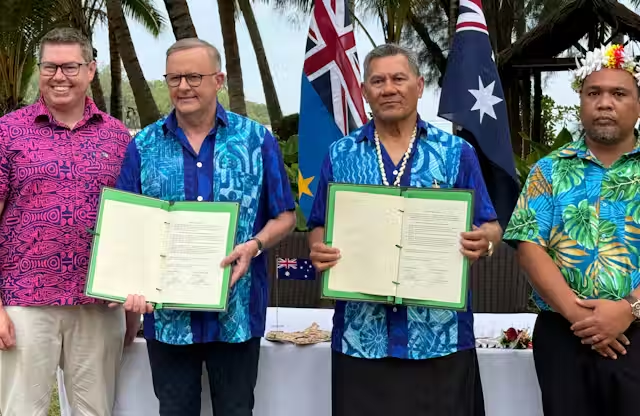Imagine living on a beautiful island nation with palm-fringed shores, only to see it slowly disappear into the sea.
This is the harsh reality for the residents of Tuvalu, a Pacific nation that’s facing an existential threat from climate change.
A Desperate Bid for Survival
More than 3,000 Tuvaluans have applied for a special visa program that would allow them to live in Australia, fleeing the rising seas that threaten their homeland.
This represents nearly a third of the country’s population, highlighting the desperation and urgency of the situation.

The visa program, which was launched by the Australian government, offers a lifeline to the people of Tuvalu, who are facing a very real possibility of becoming climate refugees.
The Clock is Ticking
Scientists predict that Tuvalu will become uninhabitable within the next 80 years, due to the relentless rise in sea levels. In fact, two of the archipelago’s nine coral atolls have already largely disappeared underwater.
The effects of climate change are already being felt, with king tides regularly inundating parts of the country.
For instance, the capital city of Funafuti is often flooded, leaving residents to pick up the pieces and wonder about their future.
Australia’s Landmark Response
The Australian government has recognized the devastating impact of climate change on Tuvalu and has responded with a landmark visa program.
The program, which is part of the Falepili Union agreement, provides a pathway for Tuvaluans to migrate to Australia with dignity.
The agreement also commits Australia to defending Tuvalu against natural disasters, health pandemics, and military aggression, providing a sense of security for the Pacific nation.
However, some critics argue that the agreement may undermine Tuvalu’s sovereignty, as it gives Australia a say in any other defense pacts the country signs.
Concerns About Brain Drain
While the visa program has been hailed as a landmark response to climate change, there are concerns that it could lead to a brain drain in Tuvalu.
The loss of skilled professionals and young talent could imperil the country’s future, leaving it vulnerable to even greater challenges.
As University of Sydney geographer John Connell noted, “Small states do not have many jobs, and some activities don’t need that many people.”
This raises important questions about the long-term sustainability of the visa program and its potential impact on Tuvalu’s development.
The Future of Tuvalu
The Falepili pact has sparked a debate about the future of Tuvalu and its relationship with Australia. While some see the agreement as a vital lifeline, others are concerned about the potential loss of sovereignty.
As Tuvalu Prime Minister Feleti Teo noted, “For the first time, there is a country that has committed legally to come to the aid of Tuvalu, upon request, when Tuvalu encounters a major natural disaster, a health pandemic, or military aggression.”
However, this commitment also raises questions about the balance of power between Australia and Tuvalu, and the potential implications for the Pacific region.
What’s Next?
The ballot for the visa program closes on July 18, and the results will be eagerly watched by the people of Tuvalu and the international community.
As the world grapples with the challenges of climate change, the story of Tuvalu serves as a stark reminder of the urgent need for action and cooperation.
The fate of Tuvalu and its people hangs in the balance, and the world is watching to see how this crisis will unfold.
Will the international community come together to support Tuvalu, or will the country become a cautionary tale about the devastating consequences of climate change?
Only time will tell.

